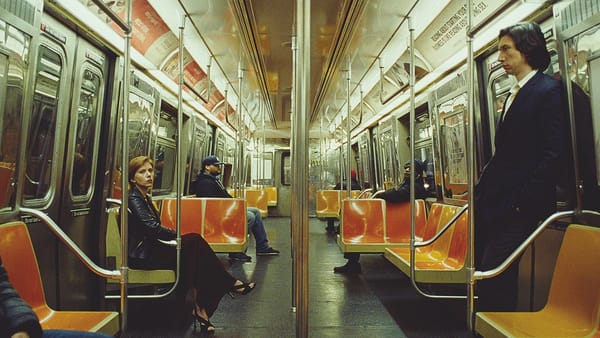BBC One’s Latest Conspiracy Thriller, The Capture
This paranoia-inducing psychological thriller explores the uneasy topics of surveillance, “deepfakes,” and a flawed judicial system

4.5 stars
BBC’s recent crime thriller The Capture presents an intriguing case of how technological advances, in this case, facial recognition and deepfakes, accelerate surveillance and threaten our privacy and integrity in the modern world. It begins with a string of seemingly unexplainable events slowly unveiling piece-by-piece with a plot twist after another. It challenges everyone’s stance and actions and will leave you questioning, “Can we believe what we see?”
The backstory
Ex-soldier Shaun Emery (played by Callum Turner), formerly accused of a war crime in Afghanistan, has been acquitted due to the video evidence that has been deemed faulty. In the midst of celebration, Emery accompanies his barrister Hannah Roberts (played by Laura Haddock) to the bus stop with Roberts heading off on the bus. But the CCTV footage says otherwise, with Emery appearing to physically attack and kidnap Roberts. DI Rachel Carey (played by Holliday Grainger) is assigned the case, who goes on to identify Emery via facial recognition and arrest him. With Roberts’s disappearance and eventual death, CCTV recordings inconsistent with the truth, the emergence of a third party equally invested in the mystery, DI Carey has to plough through layers of facade before she uncovers the truth.
Surveillance and “deepfakes”
Big Brother is watching you. This is not only the truth in George Orwell’s 1984 but also in The Capture, where as a suspect your every move is being watched, your phone calls listened to, your locations tracked. One key conflict centers around the fact that surveilled content is considered inadmissible in court, which is used to justify the approach of “correction,” where footages are falsely altered to convict suspects. It is truly ironic that The Capture begins with the discharge of a criminal (whom we later found out did commit the crime) and ends with an innocent man taken into custody, both on the basis of faulty video evidence. Consider this: CCTV evidence is often perceived as one of the most trusted, objective source. With the introduction of “deepfakes,” where one’s image is superimposed onto a source material with machine learning, has video evidence lost its objectivity it once had?
Does the end ever justify the means?
Widely explored in media, famously in 12 Angry Men, the presumption of innocence serves as the basis of our system of justice and is a legal right of the accused in a trial. This is another theme echoing throughout the story and serves as the primary motivator for Roberts, plotting to expose the practice of correction in the intelligence world. In The Capture, Roberts, a human rights lawyer, seeks to defend her Islamist client Faisal Dahmani who was taken into custody based on altered footage proving Dahmani a terrorist. The intelligence service thinks otherwise based on wiretaps and intercepts that are inadmissible in court and falsifies CCTV footage to convict Dahmani. Here we are forced to ask, do the ends justify the means? The service claims to save thousands of lives removing terrorist threats as such. Does prioritising the so-called safety justify the violation of privacy? Does it justify falsifying evidence? Does it justify one’s life, one’s integrity, one’s innocence? We have a clear answer, but who is there to ask the question and make the decision is the uneasy truth we have to face.
Controversial ending
Whilst many find the open-ended ending to be disappointing, claiming it “messy” and “untidy,” I find it rather satisfying, realistic, and thought-provoking. Although I have a preference for the typical happily-ever-after endings or at least one where justice is served, I have to admit Ben Chanan’s conclusion to the multi-layered conspiracy wraps up the series well, leaving room for the audience to decide for themselves between the dichotomy of human rights or lives, rather than forcefully imposing an opinion or the other.
Final thoughts
All in all, I would wholeheartedly recommend this conspiracy thriller to anyone, especially to thriller enthusiasts like myself. It’s a quest after truth and fairness; it sheds light on numerous controversial topics yet covers each with such depth and thoughtfulness. Everyone stands with their own versions of truths, but how do we know that the truth is indeed the truth?







